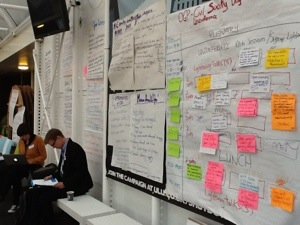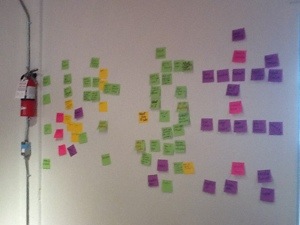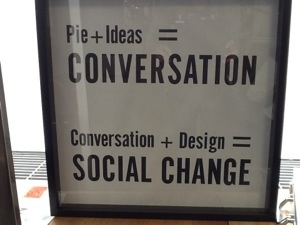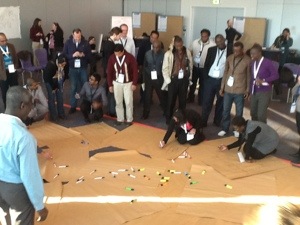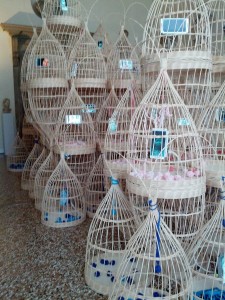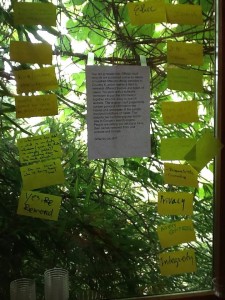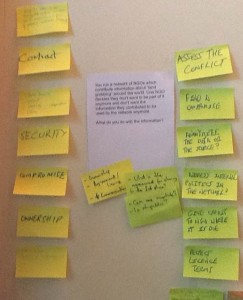Global communities and collaboration are often duck-taped together. There is no one set way to do real-time collaboration for community development. Add to the often cited request of some open source communities to only use open source tools.
As a community leader, I have a few priorities:
- Share
- Connect: build community, often with a human touch (Video, picture)
- Reach: activate the curious, invite new participants
- Document
- Remix
Add to this: we want to morph time and space which means content/events that can be translated and recorded across timezones and potentially in multiple formats. Tall order.
What’s in the toolkit?
Over the last few years, I’ve been a toolkit consumer, user and creator. At Ushahidi, we wrote and remixed the Ushahidi toolkits. These were shared almost every day via PDF/slideshare. A few months of that and I decided to make wiki pages of each of the key pages of the original toolkits. This was followed by creating new advanced toolkit pages: Data Cleaning Guidelines or the whole Ushahidi Kenya Elections Toolkits. We made the toolkits active and remixable for the community. Anyone with an account can edit the community wiki.
There are many toolkits examples in the ICT4D ether. Recently, I had the pleasure to review an upcoming Nesta Toolkit. They will be announcing the updated toolkits in the spring. See a previous version of this: Nesta’s Open Workshop.
More and more, we are looking for templates and best practices. Often tookits are just kludges for ideas. I think we need to look at them in a lean kanban sort of way. What can we keep? What do we remix? What assumptions or biases do toolkits make?
Will it ring?
After a number of notes on the OKF Mailing lists about which tools people should use for tasks, I promised to think about tools and workflow. The tool suggestion lists provided are fairly generic for many different types of jobs. There was talk about not using Google Forms for community surveys but to use: LimeSurvey or Libresoft. References were given to this stunning list of Open Source Alternatives. Another comment mentioned the Tactical Tech guide for alternatives.
Global Community Toolkit – a draft
I think we need to be very realistic about which tools a community manager needs to use in the global space. Some of the open source tools are excellent, some of them are missing key components such as reach. How can we get the next 1000 or 1 million people engaged in open source projects. If your community doesn’t use it, will they if you do? This is a juggle. We, those who work in technology, assume that our favourite tools have a low barrier to entry. If our goal is to use the best open source technology to connect the global community, then I think there are a few core tools missing. It is a tradeoff. Use the best tools to reach your current community while building a new community network or test new tools. Sometimes testing with community is a great idea. But this assumes that people want to learn yet another new tool just to learn or do stuff. My list:
| Tool /Task Type | Example |
|---|---|
| Blogs | WordPress*, Drupal*, Joomla*, tumblr, medium |
| Video | Vimeo, Youtube, Miro* |
| Social Media | Twitter, Facebook, G+ |
| Collaborative storytelling | cover it live, storify, scribble live |
| IRC | |
| Video Editing/Translation | Webmaker*, Amara* |
| Hangouts | G+ Hangout |
| Audio | Mumble*, skype |
| Document sharing | Google Documents, Dropbox, Slideshare, Scribd |
| Collaborative Writing | Hackpad, Etherpad* |
| Wiki | Mediawiki*, Atlassian* |
KEY: * = OS software
This makes my Community Manager toolkit a little over half OS software. I did not include browser (always Firefox), project management (Basecamp) or mail (which is gmail), but you get the picture. What will ring with the community but incorporate global community engagement and open source tools?
Google Hangouts is one of the best community tools to connect global folks to ideas and each other. Last year I hosted a BRCK G+ hangout which now has over 2000 views. This is small potatoes for some communities. Ubuntu and Mozilla are both great open source communities with great G+ Hangout engagement.
I find Hackpad much easier to use because you can connect a series of collaborative documents. I’ve used versions of etherpad since 2010 and am a fan (especially considering the OS piece.) But with Google Apps for Business and the ability to easily collaborate on massive documentation, I remain at a loss on how to use other options.
Now, I realize that some folks don’t approve of using Google products. I understand and have read many of the articles on NSA. I juggle this with “tools that are easy to use with the global community” and the fact that Google is open of the biggest contributors and supporters of Open Source. Google Summer of Code has infused many a small tech for good project.
Wish list
Top on my open source tools for Community Management wish list are: Video Hangouts and Document sharing. If you can make these tools usable and open source, I will happily try it out.
(Footnote: Last month on the Open Knowledge Foundation Community Hangout we started a list of tools for community building. Feel free to remix and add: OKFN Community Building Tool Directory)

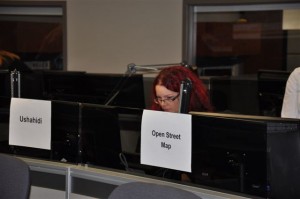

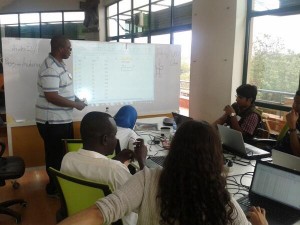
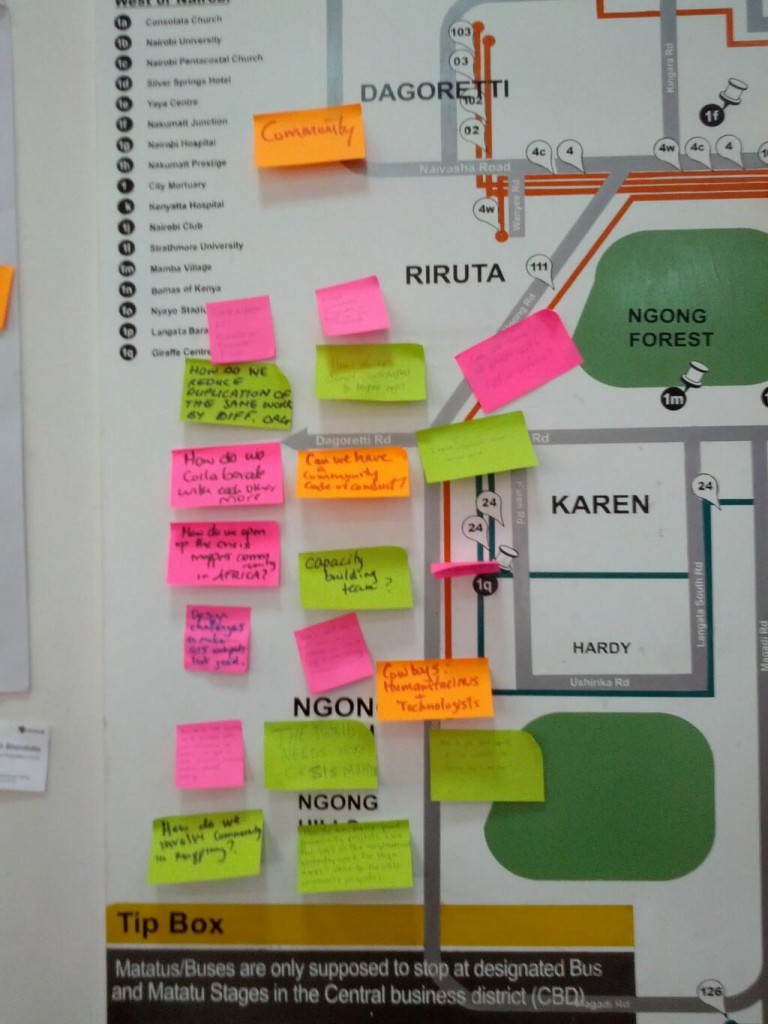
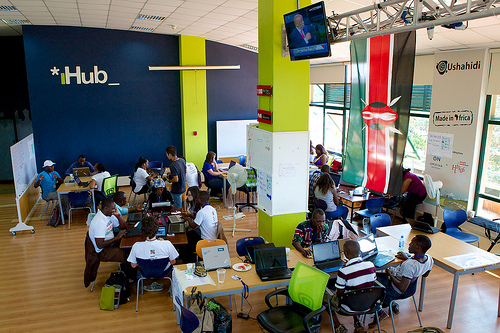 (Photo by Ushahidi)
(Photo by Ushahidi)